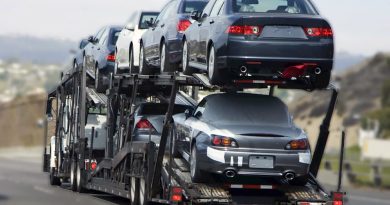Auto industry begins to recover
While Victorian automotive service and repair businesses have been severely impacted by ongoing COVID-19 restrictions, the Australian Automotive Aftermarket Association (AAAA) says workshops in the rest of Australia have staged a strong recovery, in some cases exceeding pre-pandemic levels.
AAAA commissioned ACA Research to undertake a survey of more than 200 auto service and repair workshops on the ongoing effects of the COVID-19 pandemic from May to July.
“This latest survey provides the most up to date understanding of how workshops have been fairing and there is unsurprisingly a significant variation of impact across Australia. We have also seen changes in work practices as workplaces adapt to our new normal”, said AAAA Chief Executive Officer, Stuart Charity.
“These new findings help support the industry and form part of our ongoing dialogue with Governments about how the sector is fairing and the support the industry requires. We need to ensure our industry is represented for the large contribution it makes to the economy; the service and repair sector employs more than 150,000 people in over 23,000 businesses across the country.”
For Western Australia, South Australia, and the Northern Territory, with little COVID-19 impact during May to July, business has returned to pre-pandemic levels. Twenty-seven per cent of responders were busier than they were prior to COVID-19.
Although the recovery is still occurring in Queensland and New South Wales/Australian Capital Territory, thirty per cent of Queensland businesses and 21 per cent of NSW/ACT businesses have rebounded with higher levels of business than pre COVID-19. At the start of May NSW and Queensland workshops saw a reduction of operating hours but in July NSW workshops were all back at operating normal hours, with only seven per cent in Queensland still operating at reduced hours.
“Most states and territories are seeing a return of close to, or even stronger than pre pandemic levels. This rubber band effect we are seeing is a result of customers returning after holding off on service and repair through restriction periods,” said Charity.
“It is worth noting that across the board the recovery process is occurring with a very cautious approach. The data shows that 25 per cent of workshops have less staff than before the first wave of COVID-19. This is likely because of the continued uncertainty across Australia of how the pandemic will play out over the coming months and into 2021.”
“Victoria has been severely impacted by the restrictions imposed over the last few months. Melbourne metropolitan businesses in particular are going to need significant support to rebuild. I’m confident that pending restrictions easing over the coming months, that we will see a less immediate but still noticeable swing in customer confidence as we have seen elsewhere across the country. Due to the hit however, recovery is likely to take longer in Victoria.”
To help mitigate the impacts of the pandemic, there have been key philosophy changes across the country for workshops. Ninety-three per cent of workshops are now sanitising vehicles as standard practice and 80% of workshop offer contactless pick up and drop off services. Marketing levels have also increased, with businesses actively promoting their services to customers. SMS messaging to customers saw an increase from 58 per cent in May to 77 per cent in July.
Data on the government support and satisfaction with the government response to the pandemic was also collected in the survey.
Lesley Yates, AAAA Director of Government Relations and Advocacy said 58 per cent of workshops are accessing JobKeeper. “Encouragingly, 65 per cent of workshops are also accessing Government Investment Incentives including instant asset write off, and accelerated depreciation deductions,” added Yates.
“Unsurprisingly, when asked about the satisfaction of Government response to the crisis, the survey showed a wide variety of satisfaction. Australia wide, 80 per cent of workshops have been satisfied with the Federal Government response. Victorians were the least satisfied with the level of response, but many are still largely positive about how the crisis has been managed.”
“The AAAA will continue to monitor the health of the service and repair workshop sector and ensure our advocacy efforts and services best support our members and the broader industry through these challenging times,” said Yates.
A third Australia wide COVID-19 Impact Survey will be commissioned by the AAAA in October to gather another important snapshot of the sector, hopefully with further positive news.




